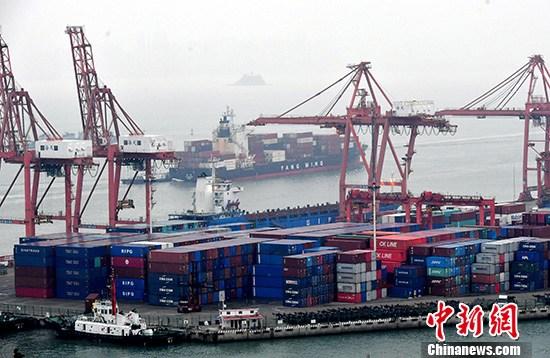U.S. trade court blocks Trump administration's tariffs imposed in early April
A U.S. federal court on Wednesday blocked the Trump administration's tariffs imposed in early April from going into effect using emergency-powers legislation, while also ruling that the president overstepped his authority by imposing across-the-board duties on imports from countries that have a trade deficit with the U.S., as reported by U.S. media.
Reuters reported that the Manhattan-based Court of International Trade said the U.S. Constitution gives Congress exclusive authority to regulate commerce with other countries that is not overridden by the president's emergency powers to safeguard the U.S. economy.
"The court does not pass upon the wisdom or likely effectiveness of the President's use of tariffs as leverage. That use is impermissible not because it is unwise or ineffective, but because [federal law] does not allow it," a three-judge panel said in the decision.
The decision, issued by the New York-based Court of International Trade, stemmed from two lawsuits: one brought by the nonpartisan Liberty Justice Center representing five small U.S. businesses importing goods from affected countries, and another by 13 U.S. states, Reuters reported.
The companies, which range from a New York wine and spirits importer to a Virginia-based maker of educational kits and musical instruments, have said the tariffs will hurt their ability to do business, according to the report.
However, the U.S. president might still be able to temporarily launch import taxes of 15 percent for 150 days on nations with which the U.S. runs a substantial trade deficit. The ruling notes that a president has this authority under Section 122 of the Trade Act of 1974, according to AP.
Within minutes of the ruling, the Trump administration lodged an appeal.
It is reported that the Wednesday's decision can be appealed to the U.S. Court of Appeals for the Federal Circuit in Washington, D.C., and ultimately the U.S. Supreme Court, Reuters reported.
On April 2, the U.S. government announced what it claims to be "reciprocal tariffs" against its trading partners, including China. A week later, many country-specific tariffs were suspended. After China took firm countermeasures to safeguard its rights and interests, the U.S. further increased tariffs to levels that even its officials said "unsustainable." On May 12, after a high-level meeting in Geneva, the two countries issued a joint statement announcing the removal of significant tariffs on each other and suspending some duties for 90 days.
The "reciprocal tariffs" not only aroused wide opposition in the international community, but also opposition inside the U.S.

